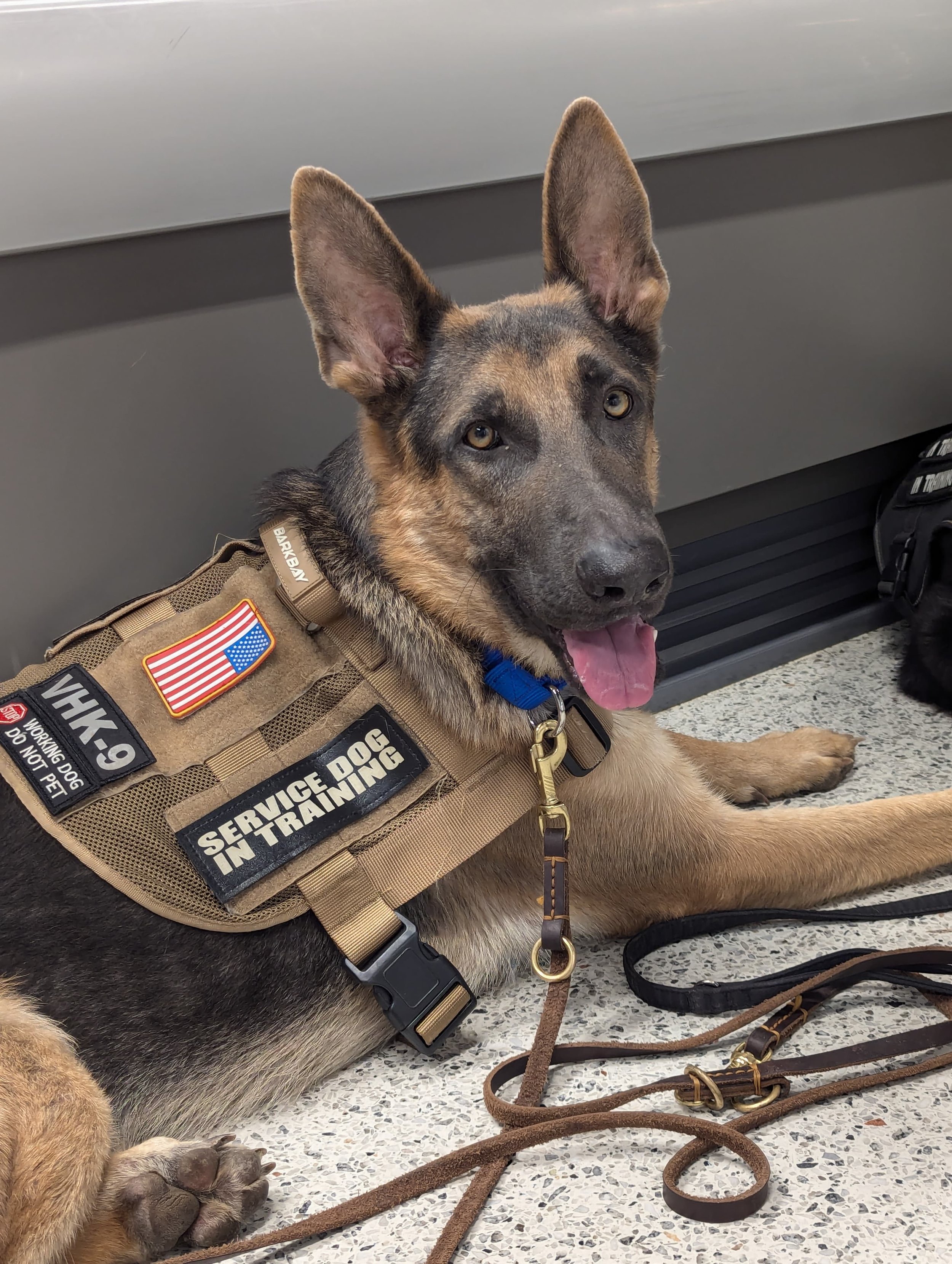
How do I qualify for a psychiatric service dog and how can Van Hendrix K-9 assist me in the selection process.
Great questions! I'd be happy to provide you with information about qualifying for a psychiatric service dog and how Van Hendrix K-9 can assist you in the selection process. Let's break this down into two parts:
1. Requirements to Qualify for a Psychiatric Service Dog:
To qualify for a psychiatric service dog, you generally need to meet the following criteria:
a) Diagnosed Mental Health Condition: You must have a diagnosed mental health condition that significantly impacts one or more major life activities. This could include conditions such as:
- Post-Traumatic Stress Disorder (PTSD)
- Anxiety Disorders
- Depression
- Bipolar Disorder
- Schizophrenia
- Obsessive-Compulsive Disorder (OCD)
b) Disability Status: Your mental health condition must be severe enough to be considered a disability under the Americans with Disabilities Act (ADA).
c) Need for Assistance: You should be able to demonstrate that a service dog can perform specific tasks to mitigate your disability and improve your ability to function in daily life.
d) Ability to Care for the Dog: You must be capable of providing proper care for the service dog, including feeding, grooming, exercise, and veterinary care.
e) Stable Living Environment: You should have a stable living situation that can accommodate a service dog.
f) Professional Recommendation: Often, a letter or recommendation from a mental health professional (psychiatrist, psychologist, or licensed therapist) stating your need for a psychiatric service dog is required.
2. How Van Hendrix K-9 Can Help in the Selection Process:
Van Hendrix K-9 specializes in providing fully trained service dogs and service dogs in training. Here's how they can assist you in the selection and assignment process:
a) Initial Consultation: VHK9 can start with an in-depth consultation to understand your specific needs, lifestyle, and the tasks you require assistance with. This helps them get a clear picture of what kind of service dog would be most beneficial for you.
b) Temperament Matching: VHK9 emphasizes matching dogs with handlers based on temperament and needs. They can assess your personality and lifestyle to find a dog that complements you well.
c) Task-Specific Training: Based on your specific needs, VHK9 can either select a fully trained dog or customize the training of a service dog in training to perform the tasks that will be most helpful for your condition.
d) Breed Selection: While VHK9 primarily trains Golden Retrievers for service roles, they can discuss the benefits of this breed for your specific needs or consider other suitable breeds if necessary.
e) Training Demonstration: They can show you how their dogs are trained using positive reinforcement methods, focusing on love and attention. This can help you understand the dog's capabilities and how it might integrate into your life.
f) Handler Training: VHK9 can provide you with the necessary training to work effectively with your new service dog, ensuring a smooth transition and strong bond between you and your dog.
g) Ongoing Support: With their 24/7 post-placement support, VHK9 can assist you even after you've been matched with your service dog, helping with any questions or concerns that arise.
h) Compliance Assurance: They can guide you through the legal aspects of having a service dog, ensuring that your dog meets all necessary standards and that you understand your rights and responsibilities.
i) Trial Period: VHK9 might be able to offer a trial period where you can interact with potential service dogs to see which one you connect with best.
j) Financial Guidance: Given that VHK9 collaborates with non-profit organizations to assist with costs, they may be able to provide information on potential financial assistance options if needed.
To start the process with Van Hendrix K-9, you would typically need to reach out to them directly. They can then guide you through their specific application process, which might include:
1. Filling out an application form
2. Providing medical documentation of your condition
3. Participating in interviews or assessments
4. Discussing your specific needs and expectations




